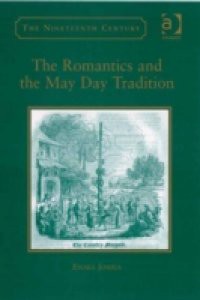This important contribution to both Romantic and cultural studies situates literature by Wordsworth, Southey, Hunt, Clare, and Blake within the context of folklore and popular customs associated with May Day. Romantic responses to May Day bring into focus a range of issues now regarded as central to the writing of the period the natural world, city life, the pastoral, regional and national identities, popular culture, cultural degeneration, and cultural difference. Essaka Joshua explores new connections between these issues in the context of a set of heterogeneous cultural practices that are rooted in the traditions and activities of diverse social groups. She shows how Romantic writers have positioned themselves in relation to what has become known as the public sphere, and the way in which they articulate an understanding of the common sphere as a site of plebeian self-expression. Joshua's nuanced account acknowledges the full complexity of class formations and inter-class relationships and permits noncanonical and canonical texts such as the Prelude, Songs of Innocence and Experience, and 'The Village Minstrel' to be reinterpreted in a cultural context that has not been previously explored by literary critics.

